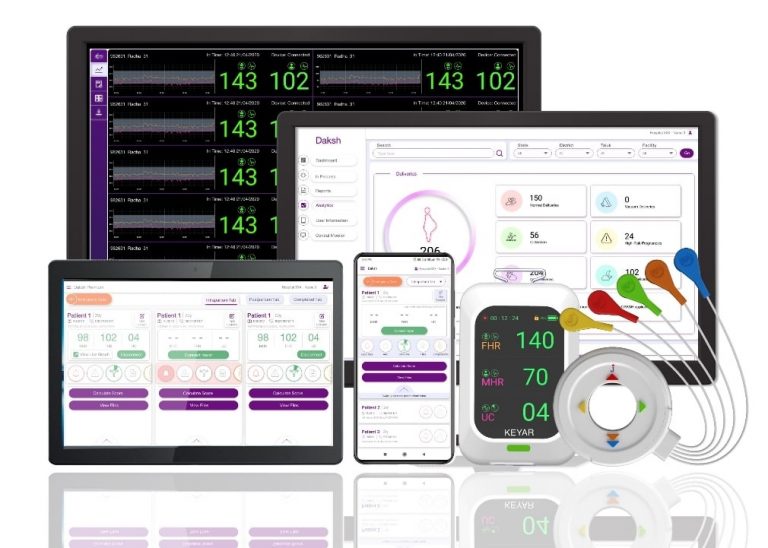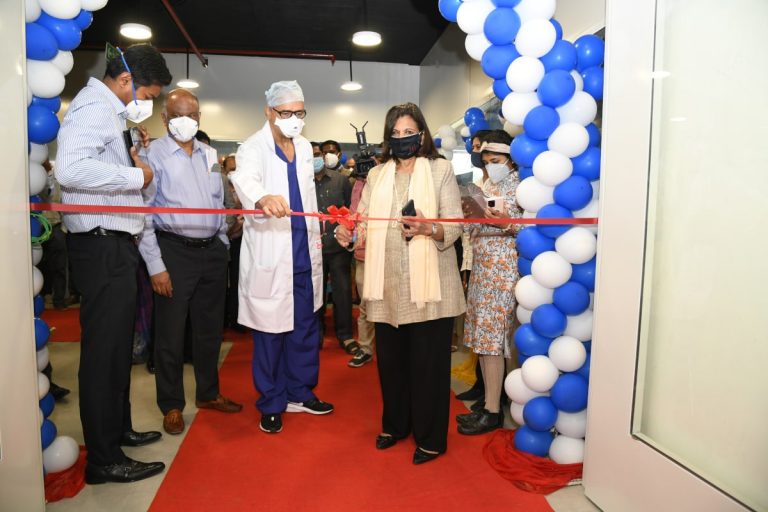Hospitals adopting entrepreneur’s innovation within their ecosystem
In India, per 1000 people, there isn’t even one full hospital bed (the value is 0.5). Keeping in mind the population, the pandemic and the ever-increasing need for healthcare, the need for innovation in the hospital ecosystem is of the utmost importance. So how can hospitals adopt innovation and what comes from it?
In a panel discussion hosted by Mr Arun Venkatesan, the Co-Founder & CEO of Villgro USA, we attempt to answer that question in conversation with the stakeholders of this industry. Aayush Rai, the Co-Founder of Inito, Abhishek Sen, Co-Founder Biosense, Dr Paul Salins, the Managing Director MSMF, and Mr George Alex, the COO of Mumbai’s Jaslok Hospital, formed the panel.


The Impact of the Pandemic on the Hospitals & the Entrepreneurs in the HealthTech Space
The pandemic’s impact on the hospital ecosystem and the HealthTech space can be understood in two aspects. The drop in non-COVID care and surgeries and two, the boost in COVID-care and the stress on the system because of it’s unprecedented onset.
“During the pandemic, hospital revenues and the footfalls dropped. A bigger impact was that a lot of payments were delayed due to cashflow issues. We are a B2C, and our sales were halved,” says Mr Aayush.
On the other hand, Mr Abhishek said, “In November-December 2020, we saw a downfall of 35-40% in sales compared to the same time last year on the non-COVID side of things. But the sale of COVID-products went through the roof, which compensated for some losses,” and added, “The pandemic gave a boost to the virtual consultation business and at-home diagnostic devices. There has been a forced behaviour change in the last few months; what is left to see is if parts of it remain as we go ahead.”
Dr Paul, who was at Ground Zero during the pandemic, expressed an interesting opinion, “The hospital ecosystem was in a shock due to the pandemic. No one anticipated it. The stress of coping with the inflow of patients who were battling COVID and dealing with the fear the non-COVID patients had to come to the hospitals made it difficult to integrate both types of care at one point in time for the hospitals.”
This sudden need for a robust healthcare system further acted as a catalyst for innovation in this space. But what is the reality of innovation adoption when it comes to the hospitals and other stakeholders? This was one of the questions asked.
Innovation Adoption in the Hospital Ecosystem & Opportunity Areas
It is not easy to change how something is done. While innovation cannot replace what physicians or clinicians can do, it can help make their jobs easier only if they accept the innovation.
“Fundamentally, the attitude for innovation adoption in the hospital ecosystem to cope with the challenges of tomorrow has not yet happened. We hope that the innovation will be integrated with the doctors’ thinking process, so they tell the management what to do,” said Dr Paul Salins.
Mr Aayush further discussed how innovation had benefitted the patient more, especially with remote diagnostics becoming a reality. “Homecare innovation creates more value for the patient than for the doctor. The remote diagnostic devices market has seen an uptick. What we were selling in a year, we are now selling in an hour. There is a change in the attitude towards innovation adoption, but it might not be that sustainable for hospitals in India. But teleconsultation works great when it comes to non-critical care,” he said.
Talking about what lies ahead in the post-pandemic phase when it comes to innovation, Mr Abhishek shared, “Real opportunity is in molecular diagnostics. There were a few hundred centres capable of RTPCR testing, but now there are probably 2500. COVID will go out eventually; the increased ability for molecular diagnostics will still be there. That’s an actionable opportunity for all of us to get in on. “
Mr George expressed that every area in a hospital ecosystem is an area of opportunity. He told the panel and the viewers, “People only invest in technology in the hospital ecosystem if they feel that it will bring in more revenue or reduce costs. It’s time that efficiency also needs to be looked at as a driving factor. There are multiple areas in which technologies created by entrepreneurs can help.”
Mentoring & Innovation: The Amalgamation That Can Help the HealthTech Space Evolve
The panellists agreed that mentors through business incubation could help innovators by granting them access to the hospital ecosystem’s stakeholders and labs, research, and clinicians who know the problems first-hand. Shedding light on this point, Mr George said, “The research comes from the doctor because he knows the problems and the gaps. He also knows what the patient is expecting. Getting these insights from a doctor gives more confidence to the innovator. When innovation is developed this way, there is early adoption, and hospitals will welcome the innovator with open arms. If they have support from the ecosystem, the innovators will come up with improved products.”
Business incubation can help the HealthTech entrepreneurs pave a brighter, more robust path for India and change healthcare functions. Mentors can bridge the gap between the clinicians and the entrepreneurs, helping them collaborate and develop a solution that the country wants but desperately needs.
Subscribe to Newsletter
Recent Posts
- Bridging The Gaps Between Treatment and Diagnosis: The FastSense Approach
- Embedded Finance in Healthcare Industry in India: Collaboration with FinTech and MedTech Companies
- Thermaissance: Where Healthcare and Quality of Life Meet
- Case Study: TeraLumen
- Emerging new business models in the MedTech industry in India




